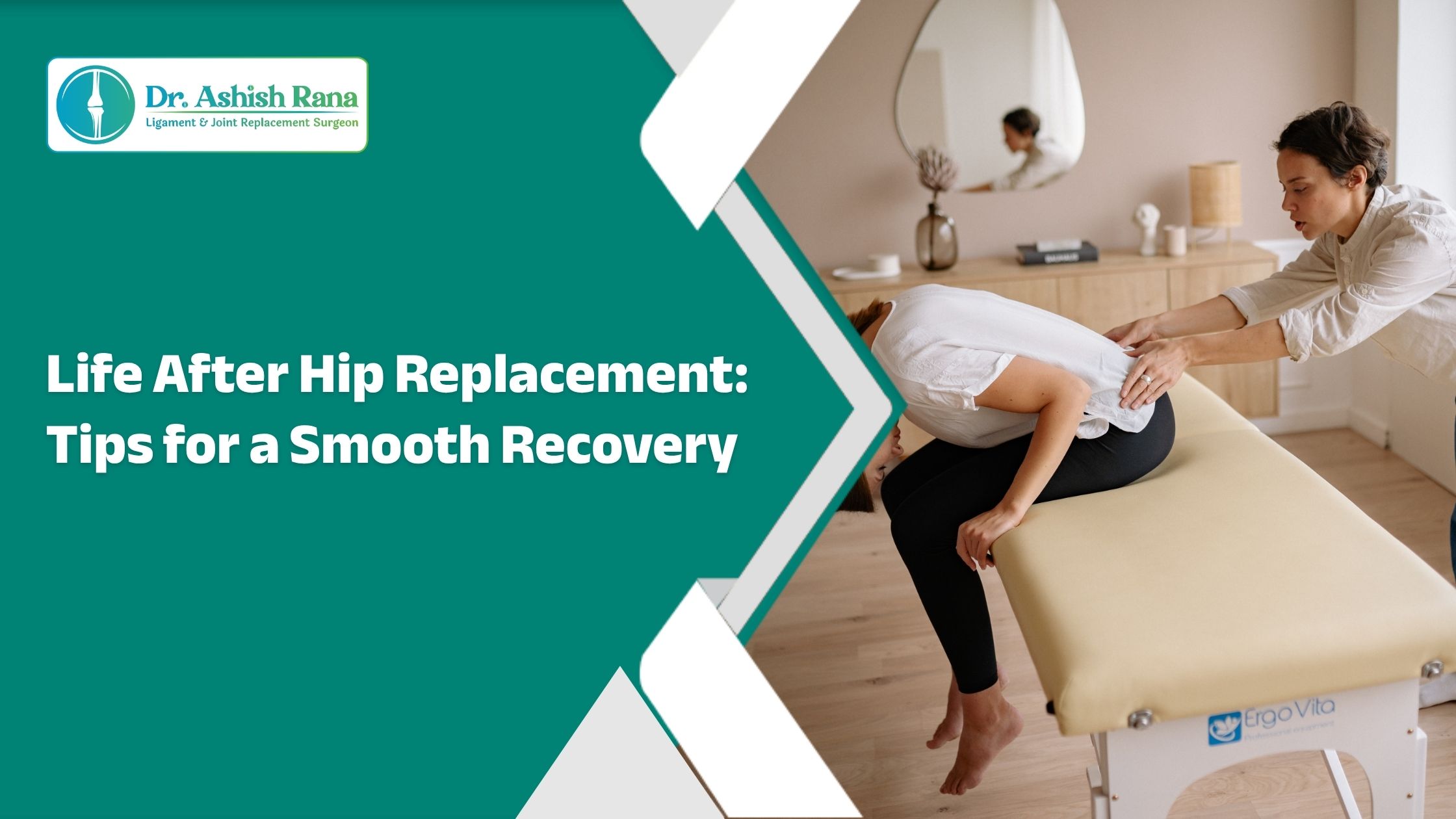Introduction – Stepping into a New Chapter
Just had a hip replacement? Or is surgery looming on the calendar, and you’re quietly tossing questions around? Breathe easy: you’re in good company, and no, recovery is not a four-walled life sentence. The bounce-back phase matters almost as much as the operating room, and you’re already winning by choosing the Best Hip Replacement Surgeon in Jaipur. Now let’s map the road ahead.
Think of this phase as the calm after the first storm—after the incision, after the anesthesia, and on toward a life that’s lighter, less painful, and essentially you. From learning to move again to the bedtime tricks that let you sleep easier, we’re about to go one step at a time.
The First Few Days – What to Expect
Hospital Stay and the First Steps
Most hips get a two-to-four-day hospital window, plenty of time to heal a little and get moving a lot. Expect some soreness; expect a twinge of nerves; expect—this is good—your care team urging you to get up, sometimes the very next day. With a walker and a steady nurse, you’ll shuffle the first little loop, then another, then, before you can deliberately think about movement, a third. Each step is a tiny victory; each tiny victory is a promise that life is waiting.
Pain: The Honest Talk
You’re going to feel discomfort—let’s get straight to it. After surgery, discomfort is part of the package. Ice, painkillers, and naps are the trio that’ll pull you through. If something feels worse than what you signed up for, call your doctor.
Getting Around: Walkers and Friends
Mobility aids are your new best buddies. A walker or some crutches give your body the break it needs. Most people spend a few weeks with them, graduate to a cane, and realize how much stronger they’re getting. Celebration is allowed.
Making Home a Healing Place
Turn Your Space into a Recovery Zone
Treat each room as a mini hospital suite. Get rid of throwing blankets, losing loose wires, and making a smooth route from your bedroom to the bathroom. If the stairs are part of your world, sleep for a while – your body will thank you.
Slip-Proof Your Life
Slippery floors, chairs that swallow you, and beds that talk you into a stretch you’re not ready for: avoid them. Put grab bars by the toilet and in the shower, lay down non-slip mats, and consider a raised toilet seat.
Teamwork is Courage, Not Weakness
You’re not auditioning for a superhero movie. If a friend wants to cook, run errands, or watch Netflix with you so you’re not alone, say yes. Sharing the load makes every day lighter.
Physical Therapy – Your Best Ally
Ease In, Step-by-Step
Your first day is all about small, careful moves. You might lift a leg just a fraction or bend a knee a tiny little bit. Baby steps, no doubt, but every tiny bit counts.
Grow Your Strength Gradually
After a long time, you have to draw with walk, balance, and be more confident. Therapy gives you the GPs you need to find the life you love, so keep showing and letting the improvement happen.
Show Up, Every Time
Want a quicker comeback? Follow your training program to the letter. This may be attractive to leave one day, but it is equivalent to giving up all the progress you have made.
Diet and Nutrition – Fuel for Return
Eat for Recovery
Your healing body is like a workshop; It moves better on the right parts. Your plate is lean protein, greens, calcium and vitamin D. Fill with photo wax, curd, almonds and eggs.
Hydrate Like You Mean It
Drink water as though it’s your new best friend. It removes waste, maintains your joints easy, and accelerates the remedy. Pro guidelines: Return salt and sugar; otherwise, they may upload friction to returning.
Sleeping After Hip Surgery
The Sweet Spot for Sleep
Sleeping on your back with a pillow snug between your legs? That’s the golden ticket. Rolling onto the new hip? Leave that for the sixth week and beyond.
Sleep Hack Magic
Upgrade to an auxiliary mattress. Add some extra pillows to raise your feet and lower back. To soften your brain and slide to sleep, cool off with a cool tea and a favorite playlist.
When Can You Drive or Travel?
Back to Driving
Don’t hurry. Most people feel ready to drive safely after 4 to 6 weeks. Make sure your reflexes are quick and you’re completely off pain meds first.
Travel Smart After Surgery
Road trip or plane trip coming? Make time for stretches and walks every hour. Compression socks give your hip and back a comfortable hug.
Returning to Work and Daily Life
Job By Job
Sitting desk job? You might be back within a month. Jobs with lots of standing or lifting need a longer break. Check in with your surgeon before jumping back in.
Back to Daily Life
Start with quick walks, stand up every hour, and add gentle stretches. If you can, try half-days first to ease back into the routine.
Simple Life Fixes You’ll Appreciate
Do This More
Stick to low-impact moves like swimming, cycling, walking, and yoga. They keep you moving and keep the hip happy without extra strain.
And Less of That
Wave goodbye to those long runs or any high-impact jumping drills. For now, steer clear of low seats, avoid twisting, and don’t cross your legs (especially for the first few months).
Watch for Warning Signs
Don’t shrug these off
Ping your doctor if you spot:
More redness, swelling, or heat around the incision
Fever or chills
A sharp, popping pain in the hip
Trouble moving your leg
Better Safe Than Sorry
If it feels slight, it still earns a call. Fast follow-up halts little worries from snowballing into big problems.
Conclusion – Moving Forward, One Step at a Time
There is no magic throughout the night, but even a small victory is piled up. One minute you are on a walker, next you go through the park without laying that neck.
Life is your second task after a hip change. With a dose of patience, pressure from you and concrete advice from an experienced Orthopedic Surgeon in Jaipur, you will move more easily, feel better and suck in as much as possible as much as possible.
FAQs
Q1. How long does it take to feel normal after hip replacement surgery?
Most see major reforms within 3 to 6 months. Towards the end of the first year, you should feel like your normal self.
Q2. Will I ever jog again?
Running is not usually recommended as it puts heavy forces on the implant and can wear it out soon.
Q3. What do patients usually do wrong when they go home for the first time?
Exposing it – trying to get a normal routine very quickly. Exhale your doctor for the plan and be patient.
Q4. Can I plan a long journey after getting myself?
Not just the first few weeks. First, talk to your doctor, then plan a break to stand and go every two hours.
Q5. Will the new hip ever feel it is in my body?
Yes, many people feel it settling in after a few months. At first, it may feel off, but the sense of normalcy usually returns.







Leave a Reply